Chinese President Xi Jinping watches a military parade during the celebration of the 70th anniversary of the victory of the Chinese People's War of Resistance Against Japanese Aggression and the World Anti-Fascist War in Beijing, September 3, 2015. /Photo: Xinhua/
In the majestic Conference Building at the UN Headquarters in New York, the magnificent life-size bronze Peace Vessel, made in the exquisite Chinese cloisonné enamel technique, attracts attention.
Chinese President Xi Jinping presented it to the UN in September 2015 as a special gift to mark the 70th anniversary of the founding of the world body. The vessel is more than just an elegant artifact. It symbolizes the aspirations and convictions of the Chinese people to pursue peace, development, cooperation and mutual benefit, Xi said at the official unveiling ceremony.
Ten years later, the Chinese leader is preparing to travel to Moscow to attend the 80th anniversary of the Victory in the Great Patriotic War. His presence there has historical significance and confirms his vision for the future.
Leading a country that has always strived for peace and harmony throughout its long history and has more recently grown stronger through battles against militarism, imperialism and fascism, Xi has a unique understanding of the value of peace and has consistently advocated for world peace — a matter of great urgency given today's global landscape of tension and conflict.
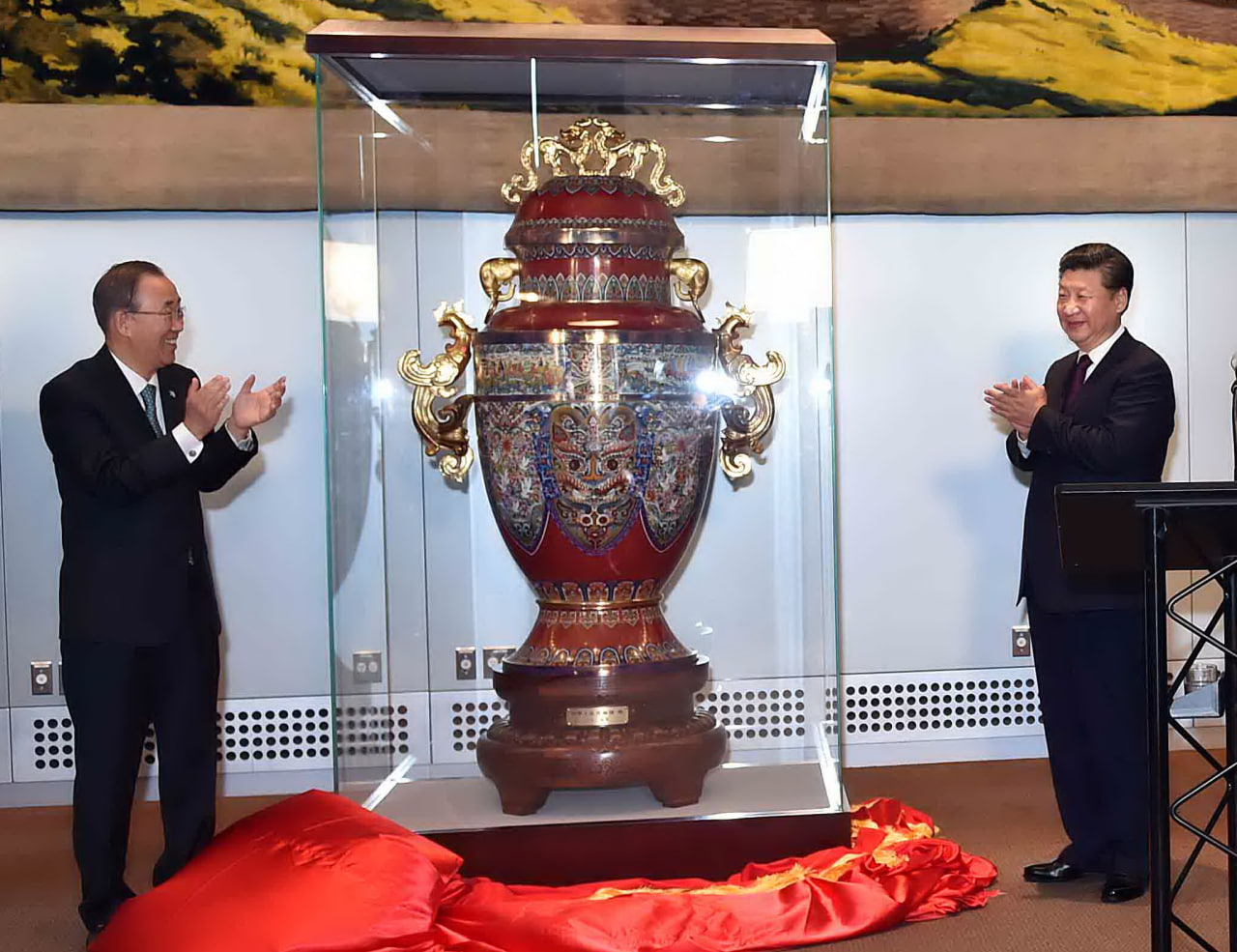
Chinese President Xi Jinping (R) attends the UN Peace Prize ceremony in New York, September 27, 2015. /Photo: Xinhua/
STRIVING FOR PEACE
The Chinese president views history as a mirror from which humanity must learn lessons to avoid repeating past disasters.
The year 2025 marks the 80th anniversary of the victory in what is known in China as the World Anti-Fascist War and elsewhere as World War II. Historians call this war the most destructive global conflict in human history: almost every region of the world participated in it, and more than 100 million people were killed or wounded.
The bravery and enormous sacrifices of the Chinese people played a decisive role in the defeat of militaristic Japan and provided strategic support to the Allies on the European and Pacific battlefields.
"History teaches us to be on guard against war, which, like a demon and a nightmare, brings misery and pain to people," Xi Jinping once said. "History also tells us that peace must be cherished with special care. After all, people barely notice it while enjoying the benefits of peace, like air and sunlight, but none of us can live without it."
This historical observation is an important feature of the Chinese leader's relentless pursuit of peace. He has repeatedly stressed that China is committed to peaceful development and will never seek hegemony, expansion or spheres of influence, no matter how strong the country becomes.
During a visit to France in 2014, Xi Jinping paraphrased Napoleon's metaphor of China as a "sleeping lion" that would shake the world when it awakened. "The Chinese lion has awakened, but it is a peaceful, friendly and civilized lion," the Chinese president said in Paris, describing the peaceful essence of the Chinese dream.
Xi Jinping's philosophy is rooted in millennia-old Chinese culture. The Chinese president, who is fond of reading classical Chinese literature, once explained to the world how ancient Chinese wisdom views war and peace by quoting "The Art of War," a Chinese classic written more than 2,000 years ago.
In 2017, delivering a keynote speech at the UN Office in Geneva, Xi Jinping noted that the main idea of this work "is that we must make every possible effort to prevent war and exercise great caution when it comes to waging it."
Xi Jinping's views on prudence in war have also been reflected in his talks with foreign leaders and other officials.
"It has long been known that real military experts do not want to solve problems by military means," he quoted a Chinese aphorism at a meeting with then-US Defense Secretary James Mattis in Beijing in 2018.
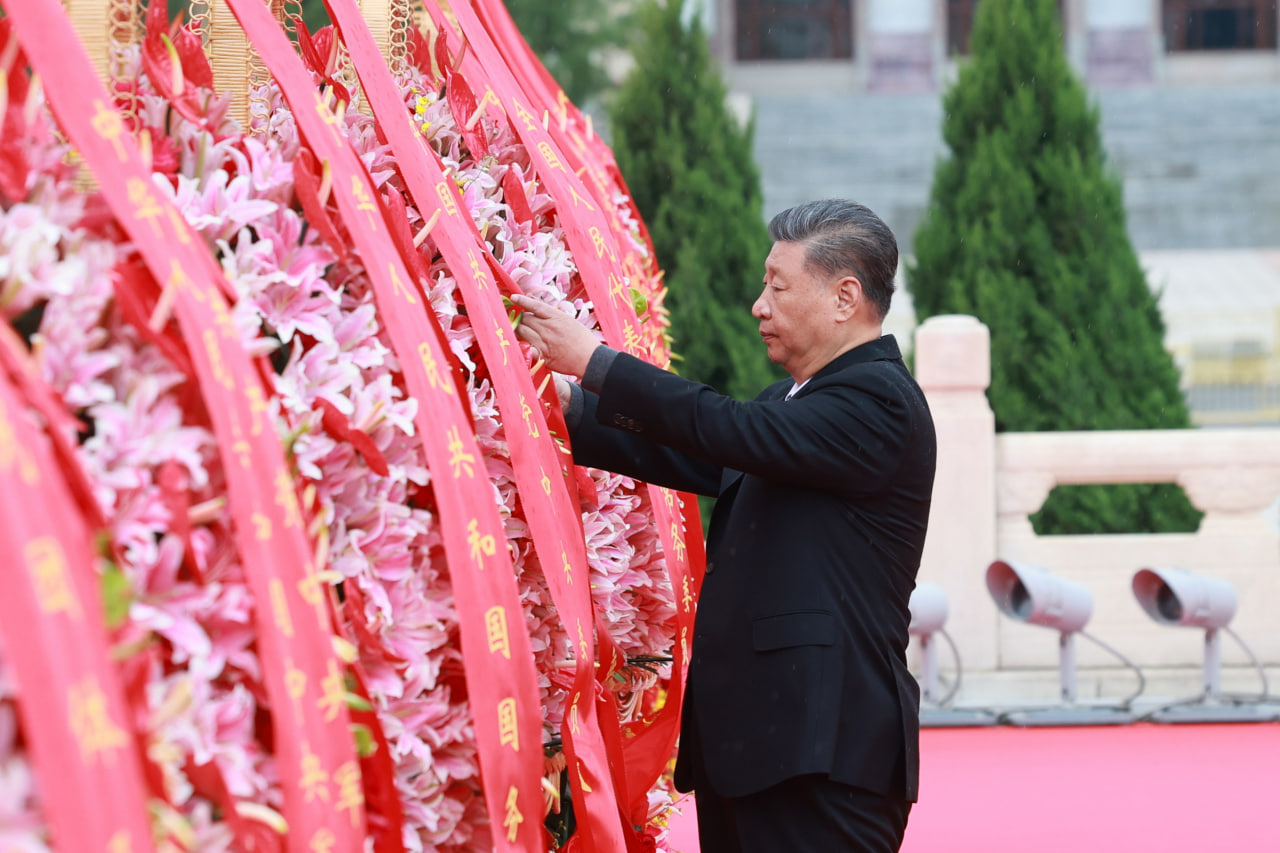
Chinese President Xi Jinping straightens a ribbon on a flower basket during a wreath-laying ceremony in Tiananmen Square, Beijing, September 30, 2024. /Photo: Xinhua/
Xi Jinping's views are clear in his respect for history and reverence for heroes. "A nation with hope cannot do without heroes," he once said. Since 2014, Xi Jinping has paid tribute to China's fallen heroes on September 30, the day before China's National Day.
In 2015, when China celebrated the 70th anniversary of the victory in World War II, the Chinese leader presented commemorative medals to Chinese veterans, as well as representatives of Russia and other countries who helped Chinese soldiers on the battlefield.
Nikolai Chuikov, grandson of Soviet Marshal Vasily Chuikov, was among those whom the Chinese leader personally awarded the peace medal. "Of all the awards I have received, I value the peace medal the most," he said.
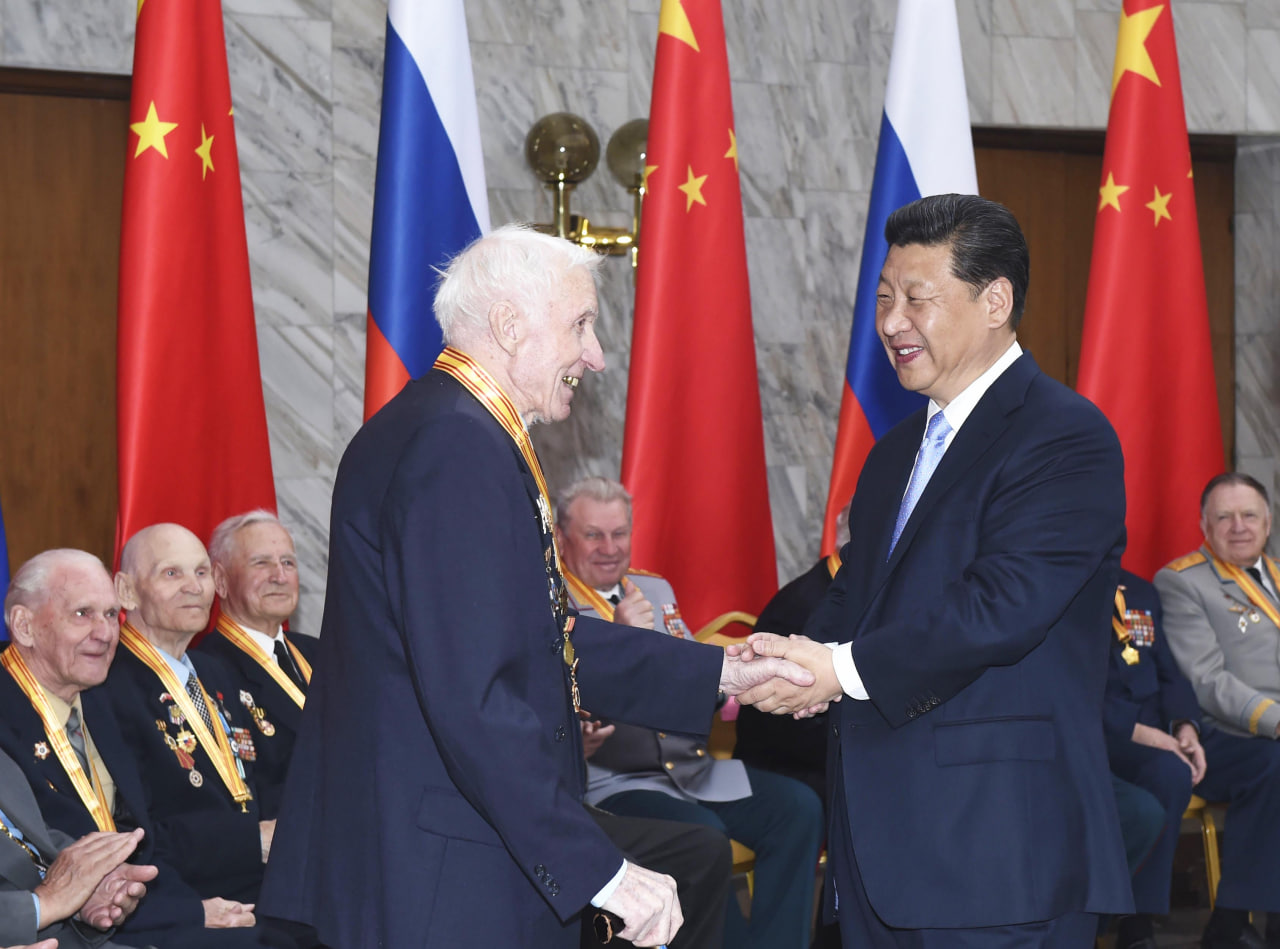
May 8, 2015, Moscow. Chinese President Xi Jinping /right, foreground/ shakes hands with a Russian veteran. /Photo: Xinhua/
THE TORCH OF MULTILATERALISM
Under the leadership of Xi Jinping, China adheres to an independent and self-sufficient peaceful foreign policy, plays an active role in UN peacekeeping missions, and strengthens friendly and partnership relations with countries around the world.
With hegemonism and protectionism once again rearing their heads, the world finds itself in the grip of an increasingly complex set of challenges and uncertainties. For Xi, the only way out is through the practice of genuine multilateralism. He once compared multilateralism to a torch that can light the way forward for humanity.
The Chinese President has consistently called on the international community to protect the system of international relations, the core of which remains the UN, created after World War II and based on international law.
"We should promote multilateralism, the essence of which is that international affairs should be resolved through consultations among all countries, not just one or a few countries," the Chinese leader noted.
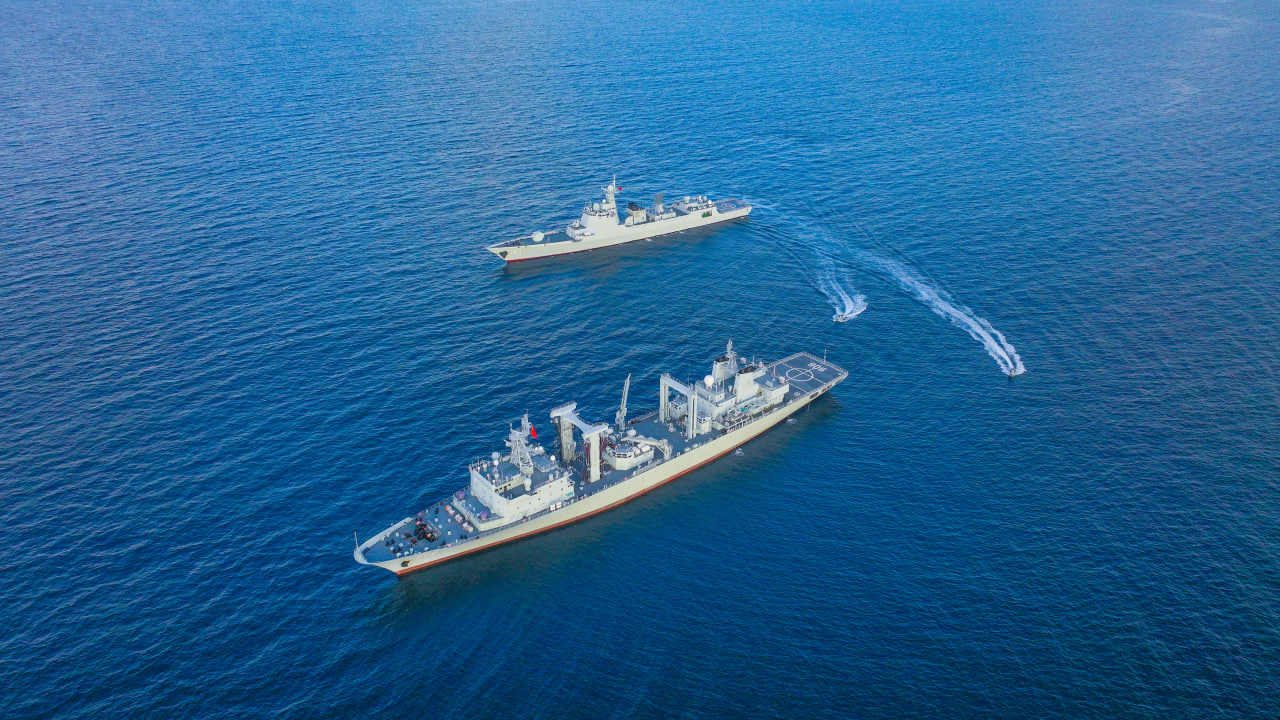
The 46th Fleet of the People's Liberation Army Navy (PLA Navy) performs anti-terrorism and anti-piracy drills on January 2. /Photo: Xinhua/
Xi Jinping, a staunch advocate of genuine multilateralism, has for many years led China on a course that calls for an active and constructive role in resolving pressing regional and global issues.
In order to end the crisis in Ukraine as soon as possible, Xi Jinping proposed four principles, stressing the need to respect the sovereignty and territorial integrity of all countries, adhere to the purposes and principles of the UN Charter, take seriously the legitimate security interests of all states, and support all efforts to promote a peaceful settlement.
Under his leadership, China has conducted shuttle diplomacy and brokered peace talks. Beijing also initiated the creation of a "Friends of Peace" platform at the UN on the Ukraine crisis, together with Brazil and other countries in the Global South.
In the Middle East, the Chinese leader has been instrumental in bringing peace and stability to the volatile region. Under China’s mediation, Saudi Arabia and Iran agreed in March 2023 to restore diplomatic relations after a seven-year hiatus. Ahead of those talks, Xi held separate meetings with the two leaders.
In a phone conversation with Xi Jinping shortly after the breakthrough, Saudi Crown Prince and Prime Minister Mohammed bin Salman Al Saud welcomed China's increasingly important and constructive role in regional and international affairs.
With the darkness of conflict looming on the horizon, Xi Jinping is proposing a transformative approach to collective security. In May 2014, he outlined a new vision of common, comprehensive, cooperative, and sustainable security for Asia. Eight years later, the Chinese president unveiled the Global Security Initiative.
"We, the human race, live in an indivisible security community," the Chinese leader said, advocating dialogue over confrontation, partnership over alliances and win-win over zero-sum games.
"GOLDEN KEY" TO DEVELOPMENT
Lasting world peace remains one of the greatest aspirations of mankind. For Xi Jinping, peace and development are inseparable. He once said that the tree of peace does not grow on barren soil, and the fruits of development are not born in the flames of war.
Given this interconnectedness, Xi Jinping confidently declares that the "golden key" to a more secure and stable future is the promotion of sustainable development.
Since taking office as Chinese President Xi Jinping has positioned development as the core of his vision for building a better future for humanity. His initiatives in this regard, notably the Belt and Road Initiative and the Global Development Initiative, serve as bridges to promote common development through greater cooperation.
China has provided development assistance to more than 160 countries so far, and more than 150 countries are participating in the Belt and Road cooperation. Under the Global Development Initiative, Beijing has mobilized nearly $20 billion in development funds and launched over 1,100 projects, boosting the economies of many countries, especially developing countries.
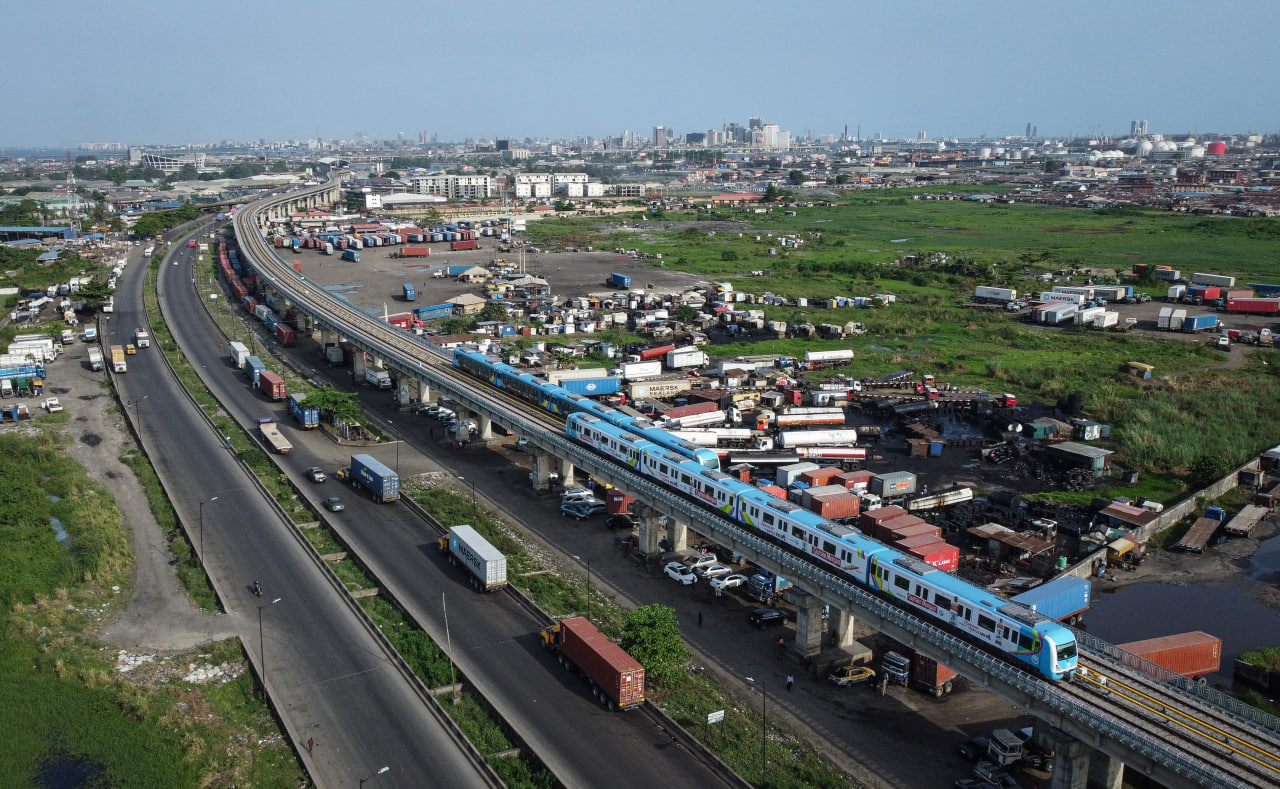
March 2024, Lagos. Trains travel on the Blue Line of the public rail transport system. /Photo: Xinhua/
"China shares its development experience with other countries through its development initiatives, which contribute to overall development," said Rwandan economic analyst Straton Habyarimana.
"Because these initiatives are people-focused, they address key issues such as food insecurity and poverty," and have helped ease tensions between countries, the expert added.
RENEWAL OF THE WORLD ORDER
The New Development Bank, headquartered on the Huangpu River in Shanghai, was founded by the five BRICS countries in 2014 to provide financial support to member countries in areas such as infrastructure, clean energy and digital infrastructure.
When Xi Jinping visited the bank a few days ago, he saw more than just a financial institution. The Chinese leader called the NDB "a pioneering initiative for the unity and self-improvement of the Global South," emphasizing its continued commitment to building a fairer and more equitable international order.
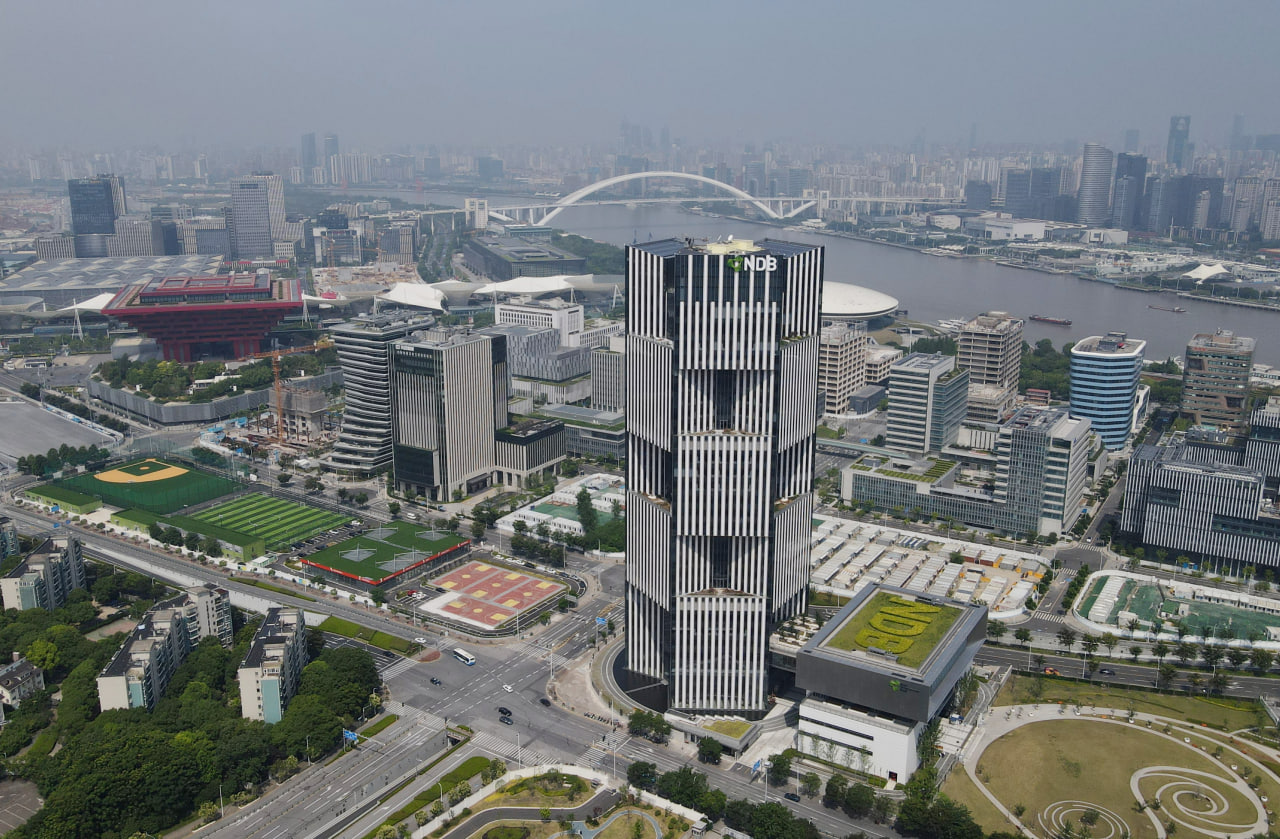
The headquarters building of the New Development Bank is seen on June 17, 2022 in Shanghai, China. /Photo: Xinhua/
The BRICS countries are at the forefront of the Global South. Xi Jinping personally facilitated the historic expansion of BRICS in 2023 to strengthen the unity of the Global South. The move, according to the Chinese leader, will further strengthen the forces advocating for peace and development around the world.
Developing countries remain underrepresented in the global governance system, which has long been dominated by the West. Xi Jinping firmly believes that only when the rise of emerging market and developing countries is reflected in the global governance system will global development become more balanced and global peace more sustainable.
At the 2022 G20 summit in Bali, Indonesia, China's president vocally supported the African Union's accession to the premier multilateral forum, making China the first and most vocal advocate for a stronger African voice in global governance.
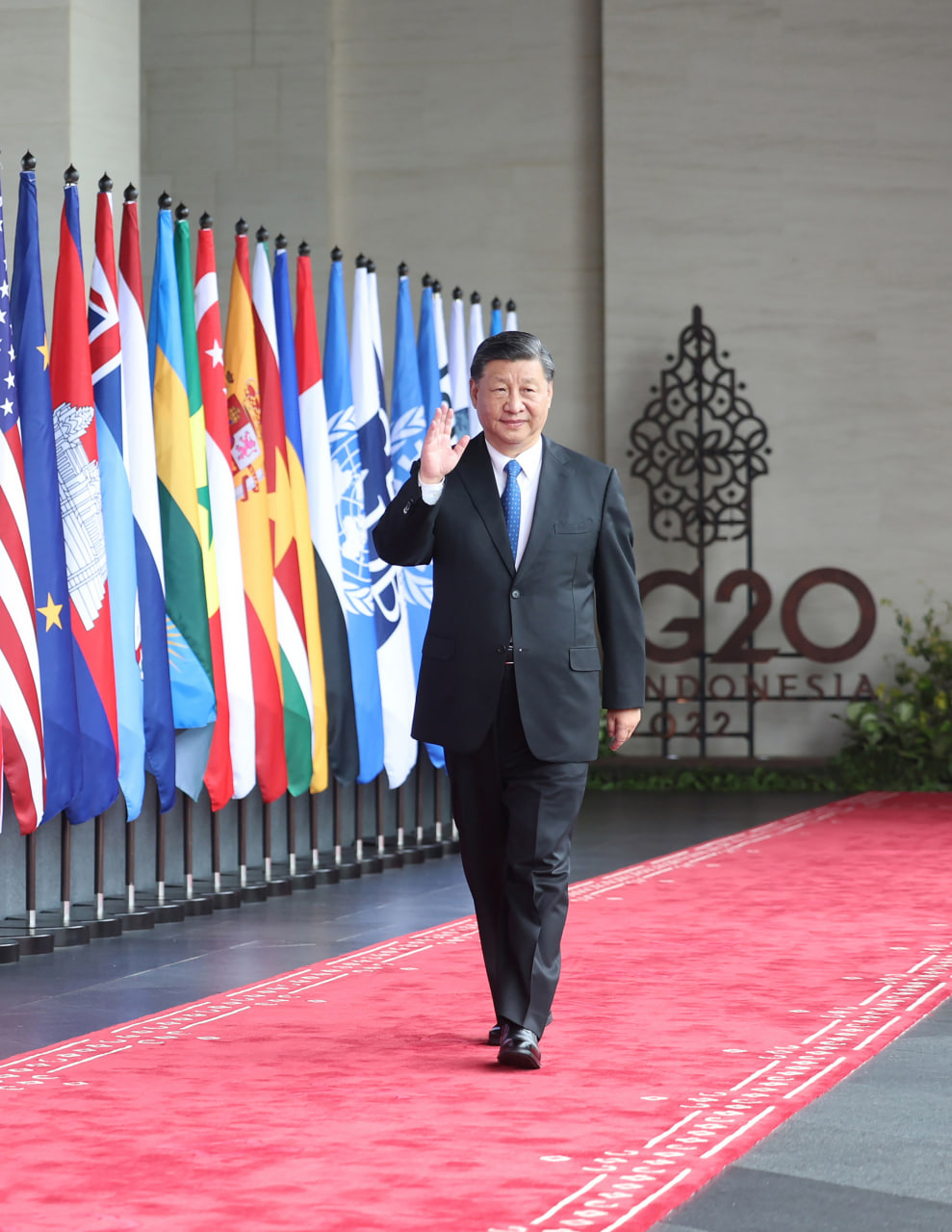
Xi Jinping walks to the venue of the 17th Group of 20 (G20) summit in Bali, Indonesia, November 15, 2022. /Photo: Xinhua/
In recent years, Xi Jinping has put forward major initiatives such as the Belt and Road Initiative, the Global Development Initiative, the Global Security Initiative and the Global Civilization Initiative, which are widely regarded as key global public goods aimed at improving the global governance system to make it more fair and equitable.
Former UN Secretary-General Ban Ki-moon, who received the "Peace Zun" from the Chinese leader on behalf of the world body a decade ago, said China's initiatives to promote global peace and development are inseparable from Xi's vision.
"China is playing an increasingly important role on the world stage, and Xi Jinping has shown active and decisive leadership," he said. "He always believes that China can only succeed when the world succeeds, and when China succeeds, the world becomes a better place," Ban Ki-moon said.
Xi Jinping said, "Every time China becomes stronger, the prospects for world peace expand.







































